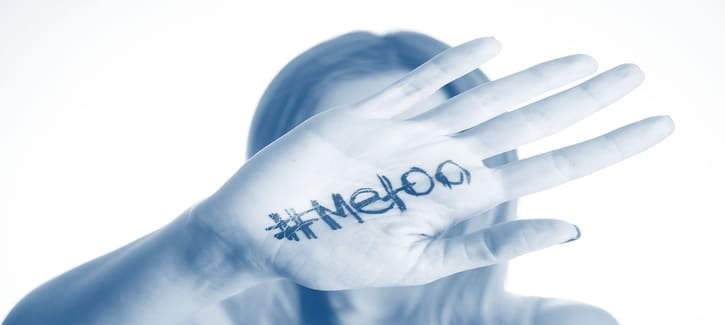Sexual Assault & A Victim’s Civil Remedy
Civil Claims For Sexual Assault
The first step in understanding your rights as a victim and survivor of sexual assault is to better understand what sexual assault is. Yes, the media reports on many stories evidencing sexual misconduct of different varieties, but the legal implications of these acts often become blurred. Workplace harassment, for example, is not the equivalent of sexual assault– even if the harassment is of a sexual nature. This article details a victim’s legal remedies in the case of sexual assault, but you can follow this link for more information on harassment. If you or a loved one was a victim of sexual assault, contact the Las Vegas sexual assault attorneys at Benson & Bingham Accident Injury Lawyers, LLC. If your assault took place due to inadequate security at a hotel, casino, shopping center or store, workplace, or public transportation, we can help you seek the legal justice you deserve.
What Is Sexual Assault Under Nevada Law?
Sexual assault is a heinous crime that affects an unthinkable number of people every day. The issue of sexual violence in the U.S. is a widely discussed topic with heavy media coverage in recent years. Breaking stories like the Harvey Weinstein sexual assault allegations and Bill Cosby’s recent trial and conviction brought the issue of sexual assault to the forefront of our society. Unfortunately, these stories are numerous because there are far too many victims. According to RAINN (Rape, Abuse and Incest National Network), every 98 seconds, another person endures a sexual assault. Women, men, children, and the elderly alike are all subject to becoming victims of sexual assault. The scope of the problem is severe, and it’s time for victims to understand their rights and know what their legal options are. In Nevada, sexual assault, or rape, is a punishable crime with a statutory definition. According to NRS 200.366:
-
A person is guilty of sexual assault if he or she:
-
Subjects another person to sexual penetration, or forces another person to make a sexual penetration on himself or herself or another, or on a beast, against the will of the victim or under conditions in which the perpetrator knows or should know that the victim is mentally or physically incapable of resisting or understanding the nature of his or her conduct; or
-
Commits a sexual penetration upon a child under the age of 14 years or causes a child under the age of 14 years to make a sexual penetration on himself or herself or another, or on a beast.
-
Nevada has numerous resources available to victims of sexual assault (we provide a list of victim resources below). Although it is a crime, the unfortunate reality is that not every person who commits an act of sexual assault ends up in prison or even facing any consequences at all. “While we’re making progress—the number of assaults has fallen by more than half since 1993—even today, only 6 out of every 1,000 rapists will end up in prison.”—RAINN, “About Sexual Assault“ This is why survivors of sexual assault need to understand their civil remedies, as they do not have to only seek justice through the criminal system. A survivor of sexual assault can file a civil lawsuit to obtain the justice and compensation they deserve.
What Steps Should I Take If I Am a Victim of Sexual Assault?

How Do I Preserve DNA Evidence From Sexual Assault?
You can obtain and preserve DNA evidence in several ways. If you involve the police, they can often catch the perpetrator through DNA evidence obtained from the crime scene or additional investigations. Other times, professionals can obtain evidence “from your body, clothes and other personal belongings.” (RAINN) “You may choose to have a sexual assault forensic exam, sometimes known as a “rape kit,” to preserve possible DNA evidence and receive important medical care. You don’t have to report the crime to have an exam, but the process gives you the chance to safely store evidence should you decide to report at a later time.”—RAINN, “What Is a Rape Kit?“
Who Are the Perpetrators of Sexual Assault? Who Can I Hold Accountable?
Anyone who commits the act of sexual assault can be accountable for doing so–nobody is immune from liability. Many unsuspecting victims find themselves in a place of trust, so they lower their guard and believe that they are in safe hands. This typically happens in a situation where there is a third-party relationship, including doctor/patient, massage therapist/client, attorney/client, employer/employee, agent/entertainer, or teacher/student. For example, a doctor might put a patient under anesthesia or other sedatives and commit the act against the patient while asleep or incapacitated. Perhaps one of the most prolific sexual assault cases of our time involves Larry Nassar, a former physician for Michigan State and the U.S. Gymnastics Olympic team. Scores of women spoke out against Nassar after years of sexual abuse and molestation. He was a well-respected physician who took advantage of young female athletes in vulnerable positions. Complaints against Nassar went as far back as 1997, begging the question: how did this go on for so long? He clouded his abuse under the guise of “legitimate medical treatment,” and many young women were unsure and afraid of coming forward. Therapists, employers, teachers, or even law enforcement officers can take advantage of their positions of control and authority. This pattern of control leads victims to believe they have no recourse, which is simply not true. In reality, juries are likely to be very responsive to victims of sexual assault, regardless of who the defendant is.
Why Should I File a Civil Suit?
A civil lawsuit functions as an accountability mechanism against the rapist and provides the survivor with the opportunity to tell their story. If you have already gone through the criminal process, it does not preclude you from filing a civil claim. A criminal conviction against the perpetrator may serve to bolster your civil claim. There are several benefits to civil litigation. First, the burden of proof in a criminal trial is “beyond a reasonable doubt,” while the burden is lower in a civil trial and only requires that the plaintiff prove their claim “by a preponderance of the evidence.” As such, a civil lawsuit provides a higher likelihood of success for holding the defendant liable. On the civil side, sexual assault is a tort action, a type of personal injury claim, and the plaintiff (survivor) can sue their rapist for monetary compensation. Although it may not right all of the wrongs, financial accountability can obtain justice. Rapists exist in all shapes, forms, and fashions, so even wealthy or well-to-do people can have to pay a victim for the damage they caused. The money obtained from the defendant in a civil case goes directly to the plaintiff. Further, injury law firms take these cases on a contingency fee basis. This means that a lawyer can represent you with no upfront fees or costs–no hourly billing or retainer fees. They don’t receive payment unless they obtain a successful settlement for you. If you or someone you know is a survivor of sexual assault, you can talk to a licensed attorney now. The National Crime Victim Bar Association’s “Civil Justice for Victims of Crime in Nevada“ outlines some of the key points for a survivor of any crime to consider when it comes to why they should file a civil lawsuit:
- Control of the case: Victims have greater control in a civil suit than in a criminal case because they are a party to the civil case, cannot be excluded from the courtroom, and have final approval of settlement proposals.
- Compensation: Civil actions can compensate victims for the monetary damages they suffered, such as medical expenses or lost income. Civil actions can also compensate victims for the emotional damage they suffered.
- Justice and accountability: Civil suits can hold offenders directly accountable to victims. These suits give victims their day in court, regardless of whether a criminal conviction or any prosecution took place.
- Crime prevention: In addition to suing perpetrators, victims can often sue other responsible parties. Civil actions provide economic incentives for crime prevention. Businesses such as hotels, apartments, and shopping centers sometimes fail to enact proper security measures because they view such expenses as unnecessary. When businesses are accountable for safety lapses, proper security becomes cheaper than defending lawsuits. Crime victims’ civil suits can increase security protection in public places, better oversight and supervision of daycare facilities, and countless other improvements.
It’s My Word Against Theirs—Do I Still Have a Case?
Yes. You can pursue a sexual assault claim against a person when you are the only witness. The chances are that the assault happened when nobody else was aware or present, and there are other ways to prove your case. A compassionate sexual assault attorney can help you sort through the facts and build the best possible case. If a criminal trial found the defendant guilty of sexual assault against you, that conviction is strong evidence in your civil suit. You can, however, pursue a civil claim even if prosecutors choose not to press criminal charges.
How Do I Obtain Compensation for What Happened to Me?
Depending on the facts and circumstances of your case, there may be several options for obtaining compensation. You might sue an individual or another party, like a facility or company that you believe contributed to the assault. If you sue an individual directly, most insurance companies will have exclusionary policies that relieve them from liability under the circumstances. Therefore, you would need to recover compensation against the defendant’s assets. You can, however, sometimes sue a party other than the individual who committed the act for negligence. If that individual or entity was somehow negligent in their actions (or failure to act), you can hold them liable. For example, consider the following types of civil suits you might file.
Negligent Hiring and Supervision
When certain companies hire employees, they might need to check for a criminal history involving abuse, domestic assault, or related crimes. This is common for caregiving positions, such as teachers, home health care workers, nursing home employees, camp counselors, and others who interact with vulnerable children or adults. If a company hires someone with a certain conviction, they can be responsible if that person sexually assaults someone while on the job. Companies should also properly supervise employees, especially when they contact others and can potentially commit sexual assault. If employees have inadequate supervision that allows them to commit a sex crime, the employer might be liable for negligent supervision.
Premises Liability/Negligent Security

Many businesses, organizations, and property owners must take proper measures to ensure that customers, employees, and visitors are safe on the premises. This includes staying safe from criminal conduct and resulting harm, such as robberies, physical assault, or sexual assault. When business or property owners fail to implement proper security, people can suffer from sexual assault and other crimes. Some locations where this can happen regularly include:
- Hotels, resorts, and casinos
- Bars and nightclubs
- Hospitals and mental health facilities
- Nursing homes
- Rehabilitation centers
- Apartment or condo complex common areas
- Parking garages
- Malls and shopping centers
- Office buildings
To prove a premises liability claim for sexual assault, your attorney can demonstrate that the entity had the duty to provide adequate security, failed to do so, and the failure led to your assault and injuries. Many people succeed in these complex claims with the right legal support and representation.
Failure to Protect Children
When organizations entrust themselves with the care of children, they must protect them from sexual assault and other harm. However, as we hear in the news, major organizations like the Boy Scouts of America and the Catholic Church failed to do so. These institutions allowed thousands of children to suffer sexual abuse, and victims are filing claims to seek compensation from the organizations. This can also apply to schools, camps, daycares, and other companies that care for children.
Let a Trusted Sexual Assault Attorneys Evaluate Your Options
You want to identify when a company can be liable for your sexual assault-related injuries because the individual rapist might not have personal assets to cover your losses. If not, you can file claims against corporations with deep pockets and insurance coverage that can cover your losses. If you or a loved one was a victim of sexual assault, contact a Las Vegas personal injury lawyer today at Benson & Bingham Accident Injury Lawyers, LLC, for a free consultation. Our firm knows how sensitive these matters are and handles each case with the compassion and respect our clients deserve.
Sexual Assault Hotlines and Local Nevada Resources
National Resources:
- RAINN (Rape, Abuse and Incest National Network)’s National Sexual Assault Hotline at 800.656.HOPE (4673)
Nevada Resources:
- Southern Nevada (Las Vegas): Rape Crisis Center
- 24/7 Hotline: (702) 366-1640
- Northern Nevada (Reno): SASS—Crisis Call Center
- SASS Line: (775) 221-7600
- 24/7/365 Crisis Call Center Hotline: (800) 273-8255
Free Consultation

